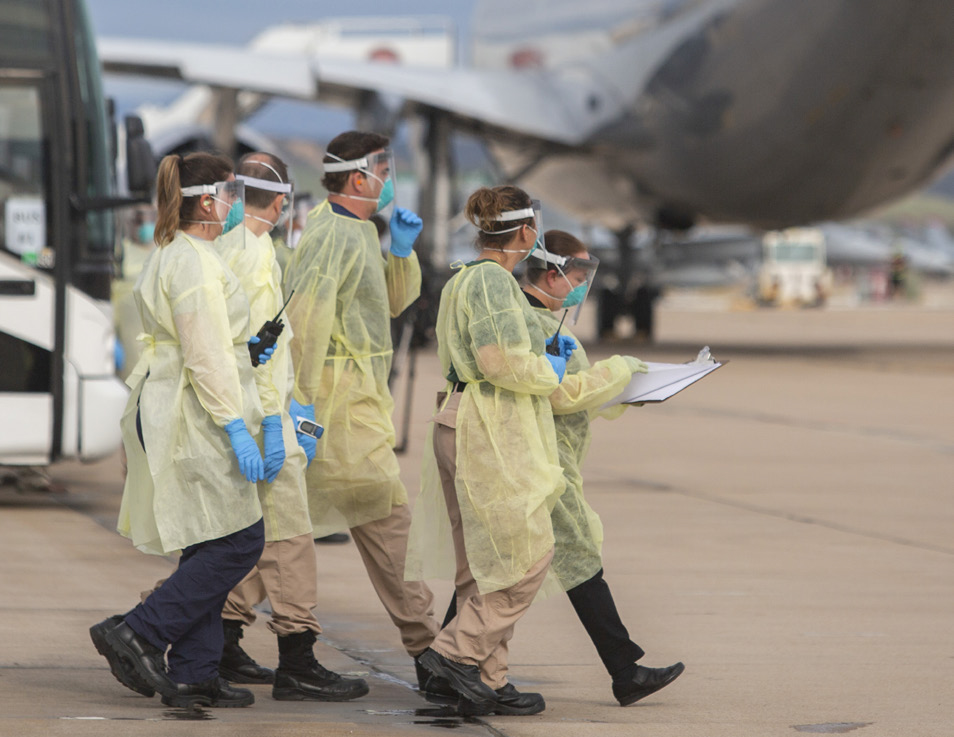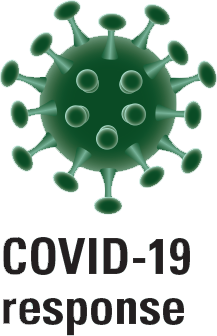Who We Are

Photo above: CDC and partners oversaw the disembarkation and repatriation of more than 260,000 cruise ship passengers and crew members affected by COVID-19 in 2020. In March, NCEZID epidemiologist and quarantine public health officer Maureen Fonseca-Ford (pictured here) worked with deployed medical responders from the federal Disaster Medical Assistance Teams and the Office of the Assistant Secretary for Preparedness and Response to follow up on the health status of the 490 Grand Princess cruise ship passengers at Marine Corps Air Station Miramar and manage the federal orders of quarantine and isolation being served. Photo credit: Jake McClung
The National Center for Emerging and Zoonotic Infectious Diseases (NCEZID) is one of 16 national centers, institutes, and offices that together make up the US Centers for Disease Control and Prevention (CDC). NCEZID is committed to protecting people from domestic and global health threats and has extensive experience leading efforts across CDC in preparing for and responding to infectious disease outbreaks. NCEZID is also one of the agency’s principal sources of epidemiologic, clinical, laboratory, and subject matter expertise for bacterial, viral, and fungal pathogens as well as infectious diseases of unknown origin. Our infectious disease experts are at the forefront of critical efforts to prevent, prepare for, detect, and respond to zoonotic and emerging infections that pose a threat to the United States and communities around the world.
LEGEND: In 2020, close to 2,000 NCEZID staff were heavily involved in the COVID-19 response. At the same time, the center had to prioritize regular (core) work, rely on other staff to help sustain it, and plan for the year ahead. This report features stories about all three types of work, designated by the following:



